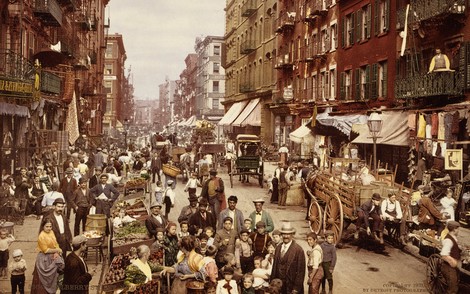Your podcast discovery platform
Curious minds select the most fascinating podcasts from around the world. Discover hand-piqd audio recommendations on your favorite topics.

piqer for: Deep Dives Global finds Globalization and politics Health and Sanity
Daria Sukharchuk is a journalist based in Berlin, where she works as a news anchor for Russian-language OstWest.tv. Her writing has appeared in Motherboard and ZEIT Online, Cosmopolitan, as well as Afisha (Moscow's leading city magazine). She specializes on the topic of human rights, migration, and mental health.
She has her BA in Chinese history, and, never having forgotten her history background, has also contributed to the educational project1917.com.
How Ideas Of Race Changed And Why It's Not About Skin Colour
Today most of us would have no trouble in distinguishing a white person from Black. But most of us wouldn't claim that they can tell if someone's from France or Ireland by simply looking at their face and seeing specific "national traits". (I could argue that the most reliable "national trait" is the national flag painted on a cheek of a football fan — but then I wore a German flag on mine once, despite being a Russian.)
Yet a hundred years ago one could see racist caricatures not only of Black people but also of Irishmen, who were deemed non-white — or "not white enough"? Since then, the perception of whiteness has changed, and the differences inside have become invisible to most of us. This one example shows that race really is a social construct that one learns to see over their lifetime, rather than a set of traits set in stone. Race is a lot more about power, as well as identity and belonging, than it is about skin colour — as any person of mixed origin can tell you. It's about seeing other people as similar to oneself, rather than different, and, of course, the ability to forget one's own race, which is the biggest privilege of them all.
